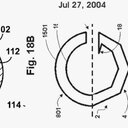Glyphosate effects on the gene expression of the apical bud in soybean (Glycine max).
Palabras clave
Abstracto
Glyphosate is a broad spectrum, non-selective herbicide which has been widely used for weed control. Much work has focused on elucidating the high accumulation of glyphosate in shoot apical bud (shoot apex). However, to date little is known about the molecular mechanisms of the sensitivity of shoot apical bud to glyphosate. Global gene expression profiling of the soybean apical bud response to glyphosate treatment was performed in this study. The results revealed that the glyphosate inhibited tryptophan biosynthesis of the shikimic acid pathway in the soybean apical bud, which was the target site of glyphosate. Glyphosate inhibited the expression of most of the target herbicide site genes. The promoter sequence analysis of key target genes revealed that light responsive elements were important regulators in glyphosate induction. These results will facilitate further studies of cloning genes and molecular mechanisms of glyphosate on soybean shoot apical bud.


